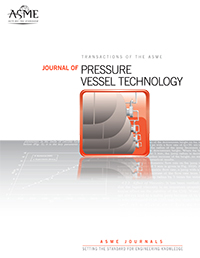The design methods for pressure vessels and piping are based on the avoidance of potential modes of failure, such as collapse, excessive deformation, and cracking. Collapse and excessive deformation from a single load application are addressed by methods such as buckling analysis, primary stress analysis, and plastic limit analysis. For instance, limit load design underlies the evaluation methods for design conditions in most existing pressure vessel design codes.
When significant cyclic loading is applied, the evaluation of fatigue and ratcheting effects becomes necessary. Fatigue analysis is concerned with avoiding the initiation and propagation of cracks that could eventually cause a sudden fracture. Ratcheting is a failure mode typically associated with components that are subjected to pressure loading and simultaneously large cyclic thermal stresses. It is characterized by deformations or plastic strains that accumulate with increasing load cycles. Continued deformation can eventually render the component unserviceable and strain accumulation can accelerate...












